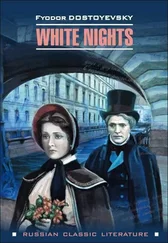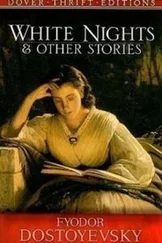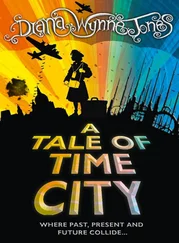Annie DeWitt - White Nights in Split Town City
Здесь есть возможность читать онлайн «Annie DeWitt - White Nights in Split Town City» весь текст электронной книги совершенно бесплатно (целиком полную версию без сокращений). В некоторых случаях можно слушать аудио, скачать через торрент в формате fb2 и присутствует краткое содержание. Год выпуска: 2016, Издательство: Tyrant Books, Жанр: Современная проза, на английском языке. Описание произведения, (предисловие) а так же отзывы посетителей доступны на портале библиотеки ЛибКат.
- Название:White Nights in Split Town City
- Автор:
- Издательство:Tyrant Books
- Жанр:
- Год:2016
- ISBN:нет данных
- Рейтинг книги:5 / 5. Голосов: 1
-
Избранное:Добавить в избранное
- Отзывы:
-
Ваша оценка:
- 100
- 1
- 2
- 3
- 4
- 5
White Nights in Split Town City: краткое содержание, описание и аннотация
Предлагаем к чтению аннотацию, описание, краткое содержание или предисловие (зависит от того, что написал сам автор книги «White Nights in Split Town City»). Если вы не нашли необходимую информацию о книге — напишите в комментариях, мы постараемся отыскать её.
Annie DeWitt
Granta
Believer, Tin House, Guernica, Esquire, NOON
BOMB, Electric Literature
American Reader
Short: An International Anthology
Gigantic
Believer
White Nights in Split Town City — читать онлайн бесплатно полную книгу (весь текст) целиком
Ниже представлен текст книги, разбитый по страницам. Система сохранения места последней прочитанной страницы, позволяет с удобством читать онлайн бесплатно книгу «White Nights in Split Town City», без необходимости каждый раз заново искать на чём Вы остановились. Поставьте закладку, и сможете в любой момент перейти на страницу, на которой закончили чтение.
Интервал:
Закладка:
I spied on Mother in bed nights flipping to the last page of the paper to read the police blotter, looking for some texture of life that had survived the summer’s suffocation. One evening she came across a headline about The Long Walker. She read the report aloud to Father: “Young ‘ambassador cougar.’ Seen by Nebraska Sowbelly. 23 Merriam Road. 6:30 pm. Attacked no humans or horses. Droppings consistent with Native Black Hills predator. Residents advised to keep pets indoors.”
“The Long Walker,” Mother said.
“What’s that?” Father said, flicking the edge of his page so the paper collapsed in the middle, enough for him to see over it and into his wife’s face.
“Nothing,” Mother said. She paused for a moment looking at Father’s eyes over the rims of his glasses.
“Have you heard of the Black Hills?” she said, tracing his beard with the back of her wrist as he nestled his hand between her thighs.
“Sure,” Father said, “Some 2,000 miles west of here. Highest peaks east of the Rockies.”
“That’s quite a distance,” Mother said.
“I’m more interested in these black hills,” Father said, digging his hand deeper into Mother’s lap.
The next day Mother drove Birdie and I out to the butte overlooking the highway while Father was at work. She parked on the edge of the cliff. Below the steep drop, cars sped by. The air had an industrial tinge to it, which Mother seemed to find comforting. She pushed the driver’s seat into recline so that she could rest her feet out the open window and feel the breeze whenever a truck passed. As we listened to the sound of the trucks cresting the hill before the way station, Mother took out the old Atlas that she kept crammed in the glove compartment of the car for emergency. The Black Hills, she told Birdie and me while taking Birdie on her lap in the driver’s seat, were an isolated mountain range that traversed from South Dakota to Wyoming. The trek east had taken the young ambassador nearly a year. As I looked out the window at the highway below, I pictured the body of the cougar as it emerged into the floodlights of Nebraska Sowbelly’s chicken coop. Father often surrendered after work to nature documentaries on PBS. His favorites were about large birds of prey. Beyond the scenery, I wasn’t much taken with these nostalgic glimpses of the hunt. What impressed me more were the strange feats of travel animals engaged in primarily for breeding. Birds flew south to the equator, migrating long distances called flyways, signaled by the length of the day. Salmon swum headlong upstream. Animals possessed honing devices that sounded at disparate intervals. This was something to which I sensed Mother could relate.
7
Not long after the Long Walker was first sighted, Mother blew the house out. An awkward tri-level structure set at the bottom of a hill, the face of the house was blocked from view of the road by two trees of knowledge, trees which, by the time we purchased the property had abandoned their vertical thrust and grown into rooty, gnarled affairs — save for in spring when they vomited garlands of nauseating white blossoms.
The exterior of the house was made to resemble an English style country house, really a New Englander’s version of an English style country house, a stately old salt box set amid sprawling beds of rugged wild flowers, thrifty crossbreeds that renewed themselves each year after the frost — both house and beds impermeable to any amount of cold or moist weather. Along with the apple trees, Mother called the house the Bottom Feeder.
“It opens up possibilities,” Mother said of the blow-out plan, “In a glass home you are so much closer to the reality of the world.” Modern living made life richer and deeper. She’d read it once in college in her roommate’s copy of Western Living with its barefoot architects and 1970s California contemporaries.
Unlike the temples of glass and steel of which Mother dreamt, the Bottom Feeder had been built with the goal of providing maximum insulation and cover from direct light. The previous owners, the stencilers, had been elderly. On our first visit to the property, the man of the house sat in a rocker in the living room, smoking his pipe in front of the wood stove. The living room was lined on the inside with reams of cedar paneling. The heat of the fire and the humidity of the man’s smoke fogged up the windows. For several months after we’d first moved in, the room smelled of wet wood and tobacco whenever it rained.
The exterior of the house was covered in a thick white stucco, a paint which, like the attitude of the house itself, retained a grainy, salt-and-pepper consistency. Occasionally, when you ran your hand over it, you discovered an unusually large blemish, a fly or two that had dried into the mix.
The blowing out of the house that summer was a family project. Mother hired a contractor to knock out the exterior wall of the house and install a band of modern floor-to-ceiling windows, large sheets of dual-paned glass, which she said would invite some of the outside world in. The contractor’s team was comprised of several high school boys who stomped around the living room in tank tops and works boots, flexing and sweating to the radio. Occasionally, they went into the yard to smoke a cigarette with Mother. What the blowout plan lacked in insulation, it made up for in Mother’s joy.
Once the windows were in, Birdie and I were given large soft-bristled brushes and sent to the sides of the house out of view of the road where the stucco finish had been abandoned in favor of wooden paneling, each panel thin enough that we could follow the grain and cover the entire width with a single stroke. When it came to painting, Father said the side of the house was all about getting on a good cover. Overlooking the marsh, appearance didn’t much matter.
It was after a Separatist’s meeting that the necessity of blowing out the house had come about. Birdie and I had spent a good part of the day at the Starlings’, swimming in their pool. Ruth and Ray Starling were our closest neighbors and Mother’s only friends on Fay Mountain, a fact established by proximity and common denominator; they were the only other couple under sixty living on our road.
Ruth and Ray had come into their marriage late in life. Ruth had lost her first husband early to heart failure. Ray’s wife had left him when their children were grown. To their second marriage, both Starlings brought a horde of children and a fierce sense of autonomy. They smoked and drank and swore at each other. At the holidays, the whole brood shored up in one house and had it out over various cuts of venison that Ray had hunted.
Ruth and Ray were the only couple over fifty whom I knew to have a visible sex life. There was something of the tongue in the way they treated each other. Even when Ray was drinking and Ruth was yelling there was an intimacy between their bodies that felt comforting. Though age had left its indications — Ray had a case of beer tired around his middle, and Ruth blonded her hair — the pair were compact of body. After a day of mowing and tending the property, Ray would stumble, shirtless and sweaty, down to the pool where Ruth was watching us swim. The Starlings owned acreage. An outdoorsman and daytime drinker, one had the feeling Ray celebrated this fact to considerable advantage. At the end of the day, despite his sunburnt stupor, he retained a buzz and an eye for his wife’s figure. This fact was known to anyone who visited them. Ruth often went about the house bare-chested, her low cut black one-piece barely pulled up over her nipples, the straps hanging loosely at her sides.
Those afternoons I spent with them, the two often retired around the pool in adjoining lawn chairs. After exchanging words, Ruth poured herself a drink from the bottle in the storage shed and returned to nuzzle her feet in Ray’s lap.
Читать дальшеИнтервал:
Закладка:
Похожие книги на «White Nights in Split Town City»
Представляем Вашему вниманию похожие книги на «White Nights in Split Town City» списком для выбора. Мы отобрали схожую по названию и смыслу литературу в надежде предоставить читателям больше вариантов отыскать новые, интересные, ещё непрочитанные произведения.
Обсуждение, отзывы о книге «White Nights in Split Town City» и просто собственные мнения читателей. Оставьте ваши комментарии, напишите, что Вы думаете о произведении, его смысле или главных героях. Укажите что конкретно понравилось, а что нет, и почему Вы так считаете.

![Элизабет Ленхард - Свидание со смертью[Date With Death]](/books/79651/elizabet-lenhard-svidanie-so-smertyu-date-with-dea-thumb.webp)










